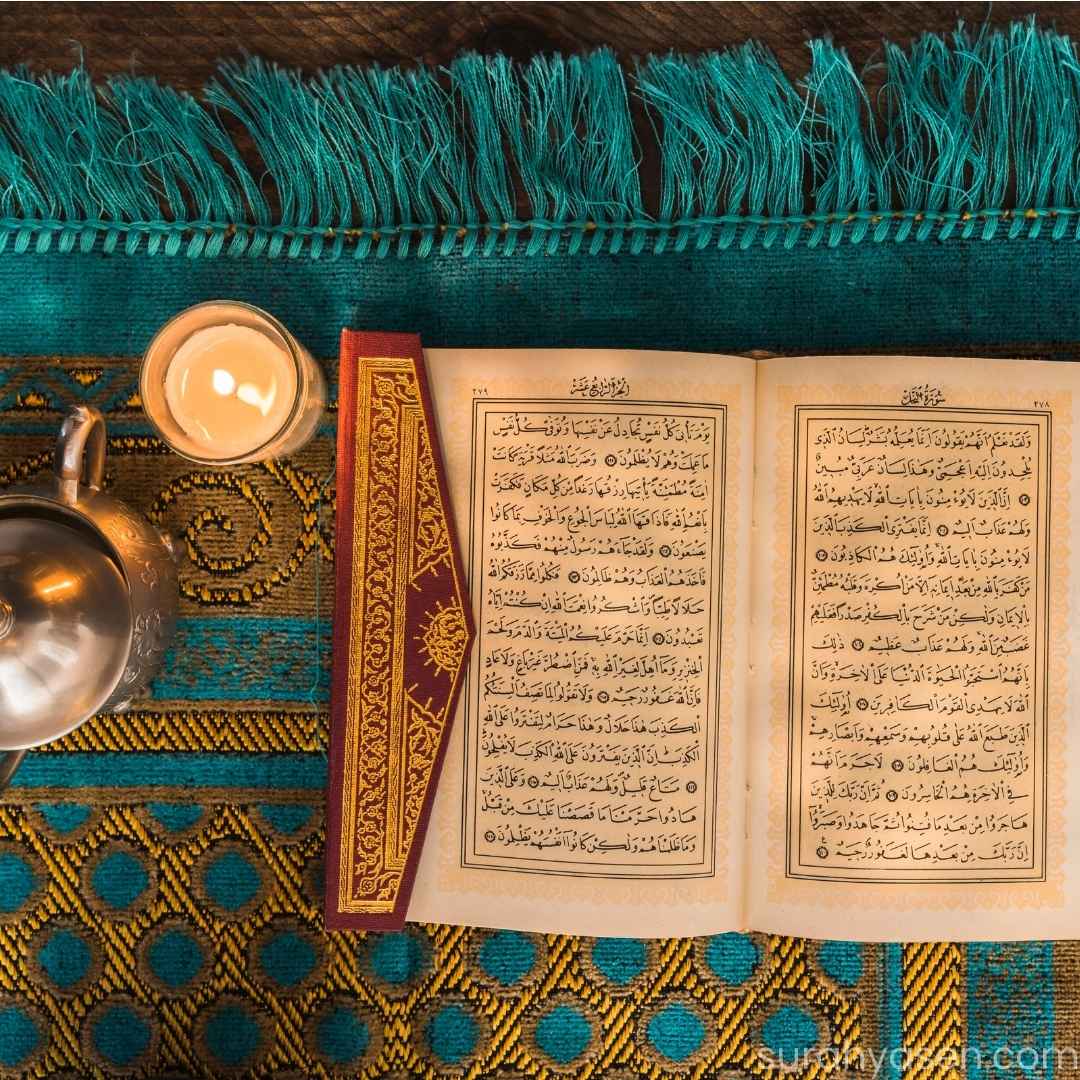Dua
Dua To Sleep Instantly

In our daily lives, every human being faces many challenges. This is a normal part of life. Life is different for everyone, but remember—10% is what happens to you, and 90% is how you react to it. That’s why it’s essential to understand your condition and your response when you’re in trouble.
Anxiety and depression often develop when people experience disturbances in their personal or social lives and cannot find a way out. In this article, you’ll find spiritual guidance on how to fall asleep instantly and maintain peaceful sleep—without medication. However, if you are on prescribed medication, please consult your doctor before trying these practices.
These spiritual exercises are habits that you can develop over time. They are meant to bring tranquility into your life and help you sleep more peacefully by the will of Allah.
Understanding the Spiritual Path
If you are a practicing Muslim, make sure you are offering your five daily prayers and following the obligatory teachings of Islam. When a trial or difficulty occurs in your life, reflect on whether it is bringing you closer to Allah or pulling you away from Him. This self-awareness will help guide your actions and give you clarity on the path you should follow.
Conduct a self-assessment, then seek guidance from the Qur’an and Hadith regarding your situation. Follow the lifestyle recommended in the Sunnah, and most of your worries will gradually fade away. A lifestyle aligned with Islam brings peace to both your life and sleep, inshaAllah. Always pray and ask Allah to bring peace and contentment into your life.
Dua To Instantly Sleep
Here are some powerful spiritual practices and duas you should incorporate into your daily life:
- Recite Surah Yaseen in the morning, evening, and before bed. This Surah holds miraculous peace-giving qualities from Allah (SWT) and will positively impact your spiritual and mental well-being.
- Recite the last 3 verses of Surah Al-Hashr (verses 22, 23, and 24) before going to sleep. These ayahs are extremely powerful and full of blessings. Reciting them repeatedly can bring peace to your heart and help you fall asleep easily.
May Allah (SWT) bless you with peaceful sleep and remove all anxiety and restlessness from your life. Ameen.
Blog
Dua e Anas

Dua of Anas ibn Malik (May Allah be pleased with him), is a powerful Dua of Protection, and it is a famous Dua among scholars. Shaikh Abdul Haq Muhaddis Al Dehlawi even wrote a commentary on it named استیناس انوار القبس فی شرح دعاء انس
In today’s world, when there is great negativity, violence, sin, and black magic, this Dua carries great importance,As this Dua protects one from accidents, jinn, black magic, enemies, evil eye, murder, and theft.
Who was Anas ibn Malik (May Allah be pleased with him)?
Before diving into the dua itself, it’s important to know the remarkable companion who received it directly from the Messenger of Allah ﷺ.
Anas ibn Malik (RA) was among the youngest and most beloved companions of the Prophet ﷺ. As a child, his mother, Umm Sulaym (RA), offered him in service to the Prophet, saying:
“O Messenger of Allah, this is your servant Anas.”
From that day, Anas spent ten years in the blessed service of the Prophet ﷺ. He witnessed his daily life, his worship, his character, and his supplications, absorbing the fragrance of prophethood in every moment.
Anas (RA) later became one of the most prolific narrators of hadith, preserving nearly 2,300 sayings and incidents of the Prophet ﷺ. Among these, he also transmitted powerful prayers, and one of the most remarkable among them is this Dua of Protection.
The Event Behind Dua of Anas ibn Malik getting famous
The context of this dua reveals its deep spiritual and historical significance.
It is narrated that Abd al-Malik ibn Marwan, the Umayyad Caliph, once wrote to al-Ḥajjaj ibn Yusuf, the notorious governor of Iraq, saying:
“Take care of Anas ibn Malik, the servant of the Messenger of Allah ﷺ. Honor him, keep him close to your gatherings, and grant him a generous allowance.”
When Anas (RA) later came to meet al-Ḥajjaj, the governor said:
“O Abu Ḥamzah! I wish to show you my horses so that you may tell me how they compare to the horses of the Messenger of Allah ﷺ.”
So al-Ḥajjaj brought out his horses, but Anas (RA) said:
“There is no comparison between your horses and the horses of the Messenger of Allah ﷺ , for even the droppings, urine, and hooves of his horses held reward and blessing.”
This statement enraged al-Ḥajjaj, who threatened him in anger:
“If not for the Caliph’s letter, I would strike your eyes!”
Anas (RA), with calm faith, replied:
“You cannot do that.”
Al-Ḥajjaj demanded, “And why not?”
Anas (RA) answered with confidence:
“Because the Messenger of Allah ﷺ taught me a supplication, and since I began reciting it, I have never feared any devil, king, or wild beast.”
Al-Ḥajjaj was astonished and said:
“O Abu Ḥamzah, teach that supplication to my nephew!”
But Anas (RA) refused.
In another version, al-Ḥajjaj himself asked to learn the dua, but Anas said:
“No, by Allah, I will never teach it to you, for you are not worthy of it.”
Years later, as Anas ibn Malik (RA) neared his death, he called upon Aban ibn Abi Ayyash, saying:
“The time of our separation has come. I will now teach you the dua that the Messenger of Allah ﷺ taught me. But promise me, do not teach it to anyone who does not fear Allah.”
Then he recited this blessed prayer, known today as Dua of Anas ibn Malik, a divine shield for those who trust Allah and seek His protection.
The Arabic Text of Dua Anas ibn Malik (RA)
بِسْمِ اللّٰهِ عَلٰى نَفْسِيْ وَدِيْنِيْ
بِسْمِ اللّٰهِ عَلٰى مَا أَعْطَانِيْ رَبِّيْ عَزَّ وَجَلَّ
بِسْمِ اللّٰهِ عَلٰى أَهْلِيْ وَمَالِيْ
اَللّٰهُ أَكْبَرُ اَللّٰهُ رَبِّيْ
اَللّٰهُ أَكْبَرُ اَللّٰهُ رَبِّيْ لَا أُشْرِكُ بِهٖ شَيْئًا
أَجِرْنِيْ مِنْ كُلِّ شَيْطَانٍ رَّجِيْمٍ
وَّمِنْ كُلِّ جَبَّارٍ عَنِيْدٍ
إِنَّ وَلِيِّيَ اللّٰهُ الَّذِيْ نَزَّلَ الْكِتَابَ
وَهُوَ يَتَوَلَّى الصَّالِحِيْنَ
فَإِنْ تَوَلَّوْا فَقُلْ حَسْبِيَ اللّٰهُ لَا إِلٰهَ إِلَّا هُوَ
عَلَيْهِ تَوَكَّلْتُ وَهُوَ رَبُّ الْعَرْشِ الْعَظِيْمِ
English Translation
In the Name of Allah — I seek His protection for myself and my religion.
In the Name of Allah — I seek His protection for every blessing that my Lord, the Exalted, has bestowed upon me.
In the Name of Allah — I seek His protection for my family, my wealth, and my children.
Allah is the Greatest! Allah is my Lord.
Allah is the Greatest! Allah is my Lord; I associate no partner with Him.
I seek refuge in Allah from every accursed devil and from every arrogant tyrant.
Indeed, my Protector is Allah — the One who sent down the Book, and He is the Guardian of the righteous.
So if they (the disbelievers or enemies) turn away, then say:
“Allah is sufficient for me; there is no god but Him. In Him I place my trust, and He is the Lord of the Mighty Throne.”
Meaning and Reflection
This dua is a masterpiece amongst the Protection prayers called hisar as it combines Dhikr (remembrance of Allah) combines tawḥid (oneness of Allah), tawakkul (trust in Allah), and isti‘adhah (seeking refuge) into one profound spiritual invocation.
1. Protection Through “Bismillah”
Each line begins with Bismillah,i.e, “In the Name of Allah.”
This repetition is not a poetic flourish, but it is a spiritual power.
It sanctifies everything, your life, family, wealth, and blessings doing so itplaces them under Allah’s protection.
2. The Declaration of Divine Lordship
“Allahu Akbar, Allahu Rabbi” — “Allah is the Greatest, Allah is my Lord.”
This phrase frees the heart from fear of creation. It reminds believers that no power, ruler, or force can harm except by Allah’s will.
3. Seeking Refuge from Devils and Tyrants
“Ajirni min kullishayṭaninrajimwa min kullijabbarin ‘anid.”
This plea guards the soul against unseen and visible enemies alike — the whispers of devils, and the oppression of arrogant rulers.
4. Affirmation of Allah as the Guardian
“Inna waliyya Allahu alladhinazzala al-kitab.”
It declares allegiance to Allah — the One who revealed the Qur’an and protects the righteous. It’s a statement of spiritual independence: our loyalty belongs only to Him.
5. Complete Reliance and Contentment
“Fa-in tawallawfaqulḥasbiyallahu lailahaillahuwa.”
When people turn away, believers turn to Allah.
He alone is sufficient — “Hasbiyallah” — the cry of every soul that trusts its Creator.
When to Recite the Dua of Anas ibn Malik
Anas (RA) advised his student:
“Recite it morning and evening, and Allah will protect you from every calamity and affliction.”
Thus, it can be read:
- After Fajr (morning) and Maghrib (evening) prayers.
- When embarking on travel.
- In times of fear, anxiety, or danger.
- As a daily protective prayer for yourself and your family.
It’s also recommended to recite it three times daily for strong spiritual protection, similar to the morning and evening adhkar.
Benefits and Virtues of Dua Anas ibn MalikR.A
While there are no explicit hadith quantifying its rewards, its meaning alone shows its immense power. Scholars and spiritual teachers have emphasized that this dua:
1. Grants Protection
Safeguards from harm, evil spirits, enemies, and oppressors, just as Anas (RA) himself was protected from al-Ḥajjaj’s wrath.
2. Strengthens Faith and Calmness
It builds peace and strength of heart and spirit by reminding your heart of the greatness and nurturance of Allah.
3. Brings Divine Barakah (Blessing)
By invoking Allah’s name upon yourself, your family, and your wealth, it invites continuous divine blessing and protection.
4. Reinforces Tawakkul (Trust in Allah)
The final verse teaches complete reliance: “Hasbiyallahu lailahaillahuwa.”
It builds unshakeable faith in Allah’s sufficiency a weapon against fear and despair.
Lessons from the Story
The incident of Anas (RA) and al-Ḥajjaj is more than a historical anecdote; it’s a moral and spiritual lesson.
1. The Power of Faith Over Tyranny
When faced with a cruel ruler, Anas (RA) stood firm, unshaken, because he trusted the dua taught by the Prophet ﷺ.
Faith made him fearless.
2. The Worthiness of Spiritual Secrets
Anas refused to teach the dua to someone arrogant and oppressive.
It reminds us that divine words carry sanctity — they are not for the ungrateful or unjust.
3. The Mercy of the Prophet ﷺ
The Prophet did not only teach theology — he gave his companions spiritual tools to face life’s dangers with divine support.
How to Integrate This Dua into Daily Life
To make this dua part of your spiritual routine:
- Memorize it in Arabic if possible, its power lies in the original words.
- Recite it every morning and evening.
- Read it after major prayers when seeking divine protection.
- Teach it to your family, especially children, as part of their daily adhkar.
- You can also write it down and keep it in your home, car, or workplace as a reminder that Allah’s protection surrounds you.
Dua Anas ibn Malik in Modern Times
In today’s world, full of anxiety, chaos, and unseen harm, in the form of Jinn, evil eye, and black magic, this dua has great significance. It reminds believers that real safety does not come from wealth, technology, or status, but from Allah alone.
The same words that shielded Anas ibn Malik (RA) from the wrath of a tyrant continue to protect those who recite them with sincerity and faith.
Whether you are struggling with stress, fear, envy, or the evil eye, the Dua of Anas ibn Malik is a spiritual armor that restores inner peace and divine connection.
Conclusion
The Dua of Anas ibn Malik (RA) is a masterpiece as besides it being a shield and armour against the calamities, it has a style of asking for by declaration of faith, humility, and divine trust.
It encapsulates the believer’s entire relationship with Allah: seeking His protection, acknowledging His lordship, and relying upon His will alone.
Anas (RA) learned this dua from the Prophet ﷺ and through it, he lived a life without fear of devils, rulers, or beasts.
Whoever recites it today joins that same chain of divine protection connecting heart to heart, from the servant of the Prophet ﷺ to the Prophet himself, and to Allah, the Lord of the Mighty Throne.
FAQs About Dua Anas ibn Malik
1. Who taught the Dua of Anas ibn Malik?
The Prophet Muhammad ﷺ taught it directly to Anas ibn Malik (RA), his young companion and servant.
2. Where is this dua recorded?
It is narrated in Al-Du‘a’ by al-Ṭabarani (no. 323) ‘Amal al-Yawmwa al-Laylah by Ibn al-Sunni (no. 308)
Al-Fawaʾid al-Muntaqah by Ibn al-Sammak — “The Selected Benefits” (p. 27)
Al-Muntaẓam fi Tarikh al-Muluk wa al-Umam — “The Chronicle of Kings and Nations” (vol. 6, p. 339)
Tarikh Dimashq by Ibn ʿAsakir — “The History of Damascus” (vol. 52, p. 259)
MajmuʿRasaʾil al-Ḥafiz al-ʿAlaʾi — “The Collected Treatises of al-Ḥafiẓ al-ʿAlaʾi” (p. 358)
Al-Khaṣaʾiṣ al-Kubra by al-Suyuṭi — “The Grand Characteristics (of the Prophet ﷺ)” (vol. 2, p. 298)
Subul al-Hudawa al-Rashad fi Sirat Khayr al-ʿIbadﷺ) (vol. 10, p. 228) .
3. When should I recite it?
Recite it morning and evening for continuous divine protection, or at times of fear, illness, or travel.
4. What protection does it offer?
It shields one from devils, evil people, tyrants, calamities, and spiritual harm as promised through the event of Anas (RA).
5. Can I teach this dua to others?
Yes, it may be shared with sincere believers who seek Allah’s protection. Anas (RA) only warned against giving it to the arrogant or godless.
6. What makes this dua unique?
It combines remembrance (dhikr), supplication (du‘a’), and Qur’anic affirmation (Hasbiyallahu lailahaillahuwa), making it one of the most comprehensive protection prayers.
Final Reminder:
Recite this dua with sincerity, reflection, and belief in Allah’s mercy.
Let its words flow from your heart, not just your tongue, for it is not the sound, but the faith behind it, that unlocks divine protection.
Blog
What is Hisar in Islam and How to Perform It?

In Islamic teachings, Hisar (حصار) refers to a spiritual shield or protection that Allah grants to His servants through the recitation of the Holy Qur’an, prescribed supplications, and remembrance of Allah (dhikr). The word Hisar literally means “fortress” or “protective boundary.” In spiritual terms, Hisar means surrounding oneself, one’s home, children, or property with divine protection so that no harm from jinn, shayateen (evil forces), or unseen dangers can affect them.
This practice has been established in the Qur’an and Sunnah, and Muslims throughout history have relied on these protective verses and du’as to safeguard themselves from the evil eye, black magic, and harm from jinn.
Why is Hisar Necessary?
Islam teaches us that unseen forces, including jinn and shayateen, exist in this world. Sometimes, humans may feel afflicted by these forces through fear, whispers, or disturbances in their homes and lives. The Prophet Muhammad ﷺ said:
“The Shaytaan flows through the son of Adam like blood.”
(Sahih al-Bukhari, Sahih Muslim)
This Hadith indicates the closeness of Shaytaan’s influence on human beings. Therefore, protection from Allah is essential. Hisar is not superstition; it is based on the powerful words of Allah revealed in the Qur’an and the supplications taught by the Prophet ﷺ.
Methods of Performing Hisar
There are multiple ways to perform Hisar, but the most authentic ones are through Qur’anic verses and prophetic supplications. Below are some well-known methods:
1. Reciting Ayat al-Kursi (Surah Al-Baqarah 2:255)
The Prophet ﷺ said:
“Whoever recites Ayat al-Kursi at night, Allah will appoint a guard for him and no shaytaan will come near him until morning.”
(Sahih al-Bukhari)
To perform Hisar, recite Ayat al-Kursi 11 times in the morning with full concentration, and again before sleeping.
2. Daily Morning and Evening Supplications
The Messenger of Allah ﷺ taught specific du’as for protection. For example, reciting the following du’a three times in the morning and evening:
“In the name of Allah, with Whose Name nothing on earth or in the heavens can cause harm, and He is the All-Hearing, All-Knowing.”
(Sunan Abu Dawood, Tirmidhi)
This serves as a protective shield (Hisar) for the entire day.
3. Reciting Surah Yaseen for Protection
Surah Yaseen is known as the “heart of the Qur’an” and has immense blessings. Reciting it daily, especially in the morning and evening, is a means of protection and barakah. Scholars mention that reciting Surah Yaseen over children or in the home creates a spiritual Hisar that prevents evil disturbances.
4. Dam (Blowing After Recitation)
Another authentic practice is to recite Qur’anic verses or supplications and then blow over oneself, children, or the house. The Prophet ﷺ used to recite Surah Al-Ikhlas, Surah Al-Falaq, and Surah An-Naas every night before sleeping, blow into his hands, and then wipe over his body for protection.
(Sahih al-Bukhari, Sahih Muslim)
Similarly, for Hisar, one can recite the above-mentioned verses and blow on the right index finger, then mark an imaginary protective circle around themselves, their children, or their home. By Allah’s permission, jinn and shayateen cannot break this Hisar.
Protecting Children Through Hisar
Small children who cannot recite Qur’an themselves can also be protected through Hisar. Parents should recite Surah Yaseen, Ayat al-Kursi, or the Mu’awwidhat (last two Surahs: Al-Falaq and An-Naas), then blow over the children.
The Prophet ﷺ himself used to recite these chapters over his grandsons Hasan and Husayn رضي الله عنهما and say:
“I seek protection for you in the perfect words of Allah from every devil, harmful creature, and evil eye.”
(Sunan Abu Dawood, Tirmidhi)
This Sunnah highlights the importance of Hisar for children.
Hisar for Homes
If someone feels strange disturbances, fear, or the presence of jinn in their house, performing Hisar is highly recommended. The steps include:
- Playing Qur’an recitation (especially Surah Al-Baqarah) in the home.
- Reciting Ayat al-Kursi and blowing around the rooms.
- Reciting Surah Yaseen morning and evening.
- Marking Hisar with one’s finger after recitation as a symbolic boundary.
The Prophet ﷺ said:
“Do not turn your houses into graves. Shaytaan runs away from a house in which Surah Al-Baqarah is recited.”
(Sahih Muslim)
Continuous Hisar Through Daily Worship
It is not enough to perform Hisar only when one feels fear. Rather, daily recitation of Qur’an, morning and evening adhkar, and maintaining salah are ongoing means of Hisar. The Qur’an is filled with wisdom and divine blessings, and whoever keeps its verses in daily practice will always be surrounded by Allah’s mercy.
Conclusion
Hisar in Islam is the act of protecting oneself, children, and home through Qur’an recitation, prophetic supplications, and reliance upon Allah. It is not a ritual of superstition but a practice rooted in the Qur’an and authentic Hadith.
By reciting Ayat al-Kursi, Surah Yaseen, Surah Al-Falaq, Surah An-Naas, and morning/evening du’as, a Muslim builds a strong spiritual fortress against jinn, shayateen, and unseen harms. Parents should especially practice Hisar for their children, while households should make Qur’an recitation a daily habit.
Ultimately, true protection comes only from Allah. Hisar is a way of seeking His divine help and safeguarding our lives, homes, and loved ones.
“And We send down in the Qur’an that which is a healing and a mercy for the believers.”
(Surah Al-Isra 17:82)
Blog
Nazar Ki Dua

Introduction: Understanding Nazar (Evil Eye) in Islam
In Islamic belief, nazar (نظر) or the evil eye is a real and powerful phenomenon. It refers to harm caused by someone’s envious gaze, often unintentionally. The Prophet Muhammad (ﷺ) confirmed the reality of nazar, emphasizing the need for protection through prayers and remembrance of Allah.
This article explains what nazar is, its causes, symptoms, and Islamic methods to remove it, including authentic nazar ki dua with English and Urdu translations.
What is Nazar (نظر) in Islam?
Nazar is believed to bring misfortune, illness, or bad luck due to someone’s jealousy or admiration. It can affect health, wealth, relationships, and even one’s general well-being. Islam teaches that nazar is real but also provides remedies for protection.
Authentic Hadith about Nazar:
The Prophet Muhammad (ﷺ) said:
“The evil eye is real, and if anything were to overtake the divine decree, it would be the evil eye.”
(Reference: Sahih Muslim 2188)
Causes of Nazar (نظر لگنا)
- Extreme Admiration: Praising something excessively without saying “MashaAllah.”
- Jealousy: Envious looks or thoughts from others.
- Self-pride: Boasting or flaunting blessings.
- Hidden Hatred: Ill feelings masked behind fake appreciation.
Common Symptoms of Nazar
The signs of someone affected by nazar can vary but often include:
- Sudden illnesses without medical explanation
- Headaches and body pains
- Loss of appetite or energy
- Continuous bad luck or failures
- Feeling restless or anxious
- Physical ailments like fever without cause
Islamic scholars recommend seeking both medical treatment and spiritual solutions, including nazar ki dua, for protection.
Islamic Methods to Remove Nazar
Islam provides authentic ways to deal with nazar:
1. Reciting Qur’anic Verses and Supplications
The best method to remove or protect against nazar is by reading specific duas and Quranic verses regularly.
2. Ruqyah (Spiritual Healing)
Ruqyah involves reciting specific verses and duas prescribed by the Prophet Muhammad (ﷺ) to seek protection from evil.
3. Regular Remembrance of Allah
Making dhikr (remembrance) and seeking Allah’s help daily is the most powerful shield against any harm, including nazar.
Powerful Nazar Ki Dua (Authentic Duas)
Here are the authentic duas for nazar protection that Prophet Muhammad (ﷺ) taught:
1. Nazar Ki Dua in Arabic:
أَعُوذُ بِكَلِمَاتِ اللهِ التَّامَّةِ مِنْ كُلِّ شَيْطَانٍ وَهَامَّةٍ وَمِنْ كُلِّ عَيْنٍ لَامَّةٍ
2. Nazar Ki Dua in English:
“I seek refuge in the perfect words of Allah from every devil and every poisonous reptile, and from every evil eye.”
3. Nazar Ki Dua Urdu Translation:
“میں اللہ کے مکمل کلمات کے ذریعہ ہر شیطان، ہر زہریلے جانور، اور ہر نقصان دہ نظر سے پناہ مانگتا ہوں۔”
4. Another Nazar Protection Verse:
You can also recite Surah Al-Falaq (113) and Surah An-Naas (114) regularly for protection.
Surah Al-Falaq:
“Say, ‘I seek refuge in the Lord of daybreak…'”
(Full recitation is recommended daily.)
Important Sunnah Practices to Prevent Nazar
- Say MashaAllah (ماشاء اللہ) whenever admiring someone or something.
- Recite Ayat-ul-Kursi (Surah Al-Baqarah 2:255) daily.
- Recite the morning and evening adhkar (daily prayers).
Final Words: Stay Protected with Faith
Nazar is a reality in Islam, but Allah has provided powerful tools and duas to seek protection. Reciting the authentic nazar ki dua, doing ruqyah, and staying connected to Allah are the best ways to stay safe from harm.
Make it a habit to read these prayers daily for the protection of yourself and your loved ones. Trust in Allah’s mercy and stay consistent in your duas.

-

 Blog1 year ago
Blog1 year agoSurah Muzammil
-

 Blog9 months ago
Blog9 months agoSurah Yaseen
-

 Blog11 months ago
Blog11 months agoSurah Nasr
-

 Blog12 months ago
Blog12 months agoSurah Yaseen: The Heart of the Quran and Its Blessings
-

 Blog1 year ago
Blog1 year agoNazar Ki Dua
-

 Dua10 months ago
Dua10 months agoDua for Protection, Powerful Islamic Prayers for Daily Safety from Enemies and Evil
-

 Blog9 months ago
Blog9 months agoNazar Ki Dua by Prophet ﷺ
-

 Quran8 months ago
Quran8 months agoSurah Kausar
